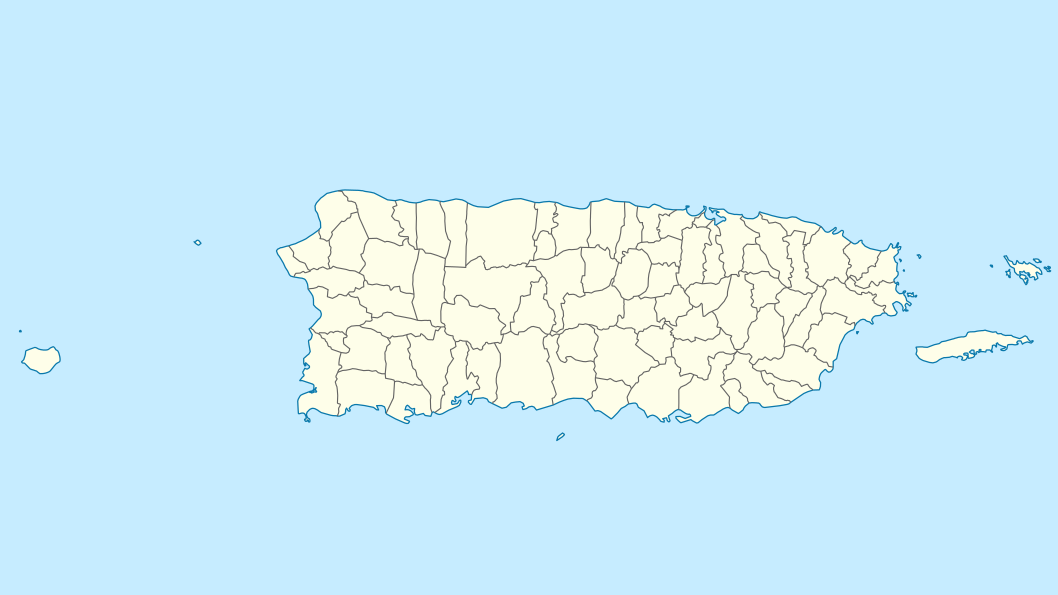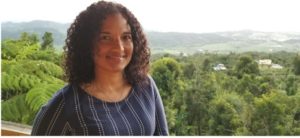Interactive Map of Perspectives


Wanda Martínez Medina
From Naguabo, Puerto Rico
“We spent eight and a half months without electricity.”
Most relevant proposals: Energy and Transportation
Story
Wanda is a mother of two who lives in a mountainous town in rural Naguabo. Since mountainous areas are more susceptible to wind, and her home was made of wood and concrete, her family sought shelter from the storm in a relative’s house located in the metropolitan area. Her family spent eight and a half months without electricity. Due to the lack of electricity for traffic lights, the morning commute traffic was nearly impossible to get through, and the roads stayed in a state of disrepair which forced her to leave her job in San Juan. What used to be an hour trip now takes three to four hours. During the eight months, her family used a small generator, enough to power two to three hours of the day, to pump water, cook, shower, clean dishes, etc. However, this meant that for some time, they had to wash and dry everything by hand and they could not rely on perishable food.
Connection with Transportation
Wanda’s family is one example of the countless families that were severely impeded by the effects of Hurricane Maria on the island’s transportation systems. Puerto Rico’s roads are in bad conditions from years of storm damage. There is no significant effective public transportation system across the entire island of Puerto Rico, and as a result, the overwhelming majority of residents rely on their own automobiles. The devastation of Hurricane Maria caused debris to cover roads, gas access to drastically decrease, and flooding to occur throughout the island.

Alejandra Rosario Crespo
From San Lorenzo, Puerto Rico
“We all have PTSD.”
Most relevant proposals: Mental health and Communication
Story
Alejandra is a college student who lives in a rural town in San Lorenzo. She found out about Hurricane Maria 2 days before it hit the island and did not realize the possible repercussions of the storm, because she had never experienced a catastrophic hurricane. Alejandra spent 3 weeks without school and 3 months without electricity. She described the aftermath environment as an “apocalyptic” atmosphere due to the isolation from lack of communication with relatives and friends. Her mental health declined as helplessness and depression overwhelmed her, leading her to report symptoms of Post Traumatic Stress Disorder (PTSD). Her family considered relocating to the continental United States to pursue better opportunities and a better quality of life, but ended up staying for the love of the island and the Puerto Rican community.
Connection with Communication
Alejandra does not stand alone. Hurricane Maria resulted in a power outage for 1.1 million people and destroyed Puerto Rico’s already fragile communication network, leaving people without a cell phone connection or internet access. According to the FCC (2017), 91% of cell sites in Puerto Rico were out of service in the aftermath of the storm. Moreover, a massive part of the issue of communication in Puerto Rico is the impact of hurricanes on mental health. Anxiety was prevalent as people did not know if their loved ones were safe or not and could not get in contact with them easily. The effects of Hurricane Maria on the mental health of Puerto Ricans is still palpable now, with 7.2% of children, grades 3 to 12 across all 7 educational regions of Puerto Rico, reporting clinically significant symptoms of PTSD.

Escuela Segunda Unidad Matrullas
(Principal Alberto Meléndez Castillo)
From Orocovis, Puerto Rico
“With 96 solar panels, we are now 85-90% independent from PREPA.”
Most relevant proposals: Energy
Story
Escuela Segunda Unidad Matrullas is a middle school located in Orocovis that houses 147 students from the municipality. Five long weeks of emergency response after the hurricane hit the island, the public schools around the island, including this school, were able to restore classes for their students, but they spent 7 months without electricity. Various non-profits and entrepreneurs grouped together to offer the school a solar power grid that would allow them to rely less on the Puerto Rico Electric Power Authority (PREPA). “With 96 solar panels, we are now 85-90% independent from PREPA” said director Meléndez Castillo. They were the first school to collaborate with this initiative, and other schools in the area are following their example by partnering with the Red Cross.
Connection with Energy
Much like Escuela Segunda Unidad Matrullas, manyorganizations have transferred their energy towards renewable alternatives such as solar panels or wind farms. In the aftermath of Hurricane Maria, the entire island of Puerto Rico faced a power outage because strong winds damaged much of the energy infrastructure. This devastation compounded with the effects of Hurricane Irma two weeks prior to Maria, which had already left over one million residents without power. Prior to both storms, 85% of power lines were already unable to withstand a category 4 hurricane.

INTECO
Iniciativa Tecnológica Centro Oriental (Oscar Jiménez- engineer and president of INTECO)
From Caguas, Puerto Rico
“Promoting entrepreneurship is essential to fuel the economy of each municipality.”
Most relevant proposals: Economics
Story
INTECO (Iniciativa Tecnológica Centro Oriental) is a non-profit technology-based organization created and incorporated by the municipality of Caguas with the purpose of channeling projects and activities of all kinds that promote the economic development of Caguas and the Central-Eastern Region of Puerto Rico. The three main areas of impact that the municipality of Caguas faced were: physical damages, meeting citizens’ needs and economic burden. Since the municipality is in charge of a lot of public buildings, any physical damages to these had to be taken care of with their emergency funds. Moreover, many citizens were left without basic necessities, hence the municipality had to take out some of their operational expenses to dedicate funds to help citizens. Insurance companies were supposed to relieve the economic burden but most did not pay due to a lack of funds, and have since declared bankruptcy and shut down without paying. The municipality found itself with a lot more expenses but less income due to the halt in government funds, such as taxes, because small businesses were closed and cash flow decreased substantially. To foster entrepreneurship, INTECO is creating a business, response and recovery center funded by the United States Department of Commerce Economic Development Administration (US EDA) so that small businesses could relocate themselves and operate from their facilities after a major disaster.
Connection with Economic Development
Each year more and more municipalities promote entrepreneurship with initiatives similar to those INTECO advances to battle the economic debt that has affected the island for years. Puerto Rico is approximately $120B in debt, with the economic situation worsening with the nearly $140B of recovery costs of Hurricane Maria. Currently, the island is spending about 30% of its budget on paying off this debt. INTECO is one example of a great incentive for young entrepreneurs to start up new businesses in Puerto Rico.

Boys & Girls Club of Puerto Rico- Vieques Club
(Abdon Escalera, manager)
From Vieques, Puerto Rico
“The services in all our clubs were open to anyone who needed, like members, families, visitors, etc.”
Most relevant proposal: Supplies Distribution
Story
The Boys & Girls Club of Puerto Rico (BGCPR) is an after-school program that caters to children and youth between the ages of 6 and 18. The Vieques Club is located on Vieques, one of the smaller islands of Puerto Rico. After Hurricane Maria, the club served as a community center by distributing donations of food, water, clothes, and hygiene items and providing a safe space for community members. During the first few months of recovery, they worked with the United Nations International Children’s Emergency Fund (UNICEF) to supply catered hot meals to their members. FEMA reimbursed some funds spent for the emergency on facility cleaning, debris disposal, infrastructure improvements, but the BGCPR is still negotiating with the municipality to get reimbursed for the hot meals. Moreover, since the local hospital was damaged by Hurricane Maria and was still closed in Fall 2019, the Vieques club served as a health clinic where medical volunteers could see participants and families.
Connection with Supplies Distribution
The 12 BGCPR locations served as community centers across the island and played an essential role in distributing supplies to community members, as it did in Vieques. During Hurricane Maria, people in Puerto Rico went an average of 64 days without traditional water service, but this number was much larger for people in rural areas. Access to food was limited, as most supermarkets were empty or had extremely long lines because of excess demand and limited supply. Additionally, hospitals did not have enough energy to fully provide care for their communities and many pharmacies were closed, meaning refrigeration for heat-sensitive medications as well as many prescribed medications were unavailable.




